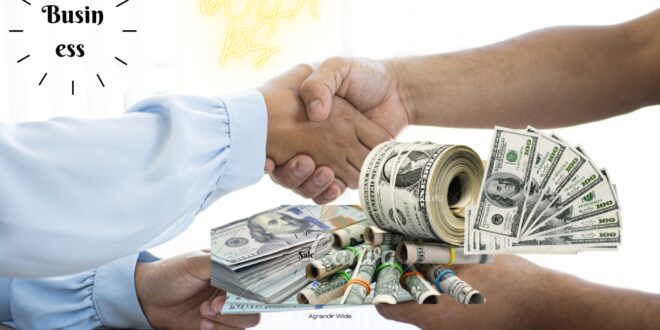How To Find Your Billion-Dollars Business Idea
Online is serial entrepreneur and author known as a pervader of work and lifestyle optimizations. He is the founder of Online Digital.
If you can’t find an idea for a business, you are probably looking in the wrong place.
Ever heard someone say, “I had the idea for Uber years before they came up with it”? Maybe you’ve even said it yourself. You hear it all the time, and shockingly few of these people are stepping out of Lambos and rocking Rolexes. To quote the dramatized version of Mark Zuckerberg played by Jesse Eisenberg in The Social Network: “If you guys were the inventors of Facebook, you would have invented Facebook.”
When it comes to business, especially disruptors like Uber or Facebook, we tend to valorize the idea: “Why didn’t I think of that?” Or, to go back to where we started: “I did think of that!”
Read more International Business
The result: generations of would-be entrepreneurs are chasing the next big idea. The service, the product, the app, the offer that will change everything and make them billionaires in the process. In the end, they’re chasing their tails. You don’t build a successful Business by chasing an idea.
I come from a family of entrepreneurs. My Boomer dad and my Gen-X older brother both founded multiple businesses. I give them a lot of grief for being part of an “old guard” of business owners—the pre-Internet paradigm that involved brick-and-mortar stores, a big payroll, high overhead and eighty-hour workweeks fueled by donuts and coffee on the way to an early heart attack. For them, there was no such thing as “big enough.” There was always more revenue to tap, more market share to claim, more competitors to take down—type II diabetes be damned.
As a millennial, I come from a whole different paradigm of entrepreneurship: the lean, mean and scrappy business, just big enough that I can afford a fulfilling lifestyle but small enough that it doesn’t take a toll on my wellness. Remote teams, low overhead, digital nomadism, lifestyle design. I’m an evangelist for that approach to entrepreneurship.
But as much grief as I give the old-timers, they were right about something big, something would-be moguls from my generation often miss: They didn’t go looking for ideas. They knew that you could spend a lifetime chasing the next big idea, and it wouldn’t happen.
To start a business, look for problems.
Becoming A “Problem-Hunter”
Mark Zuckerberg didn’t found Facebook because a golden idea came down to him from the heavens. He did it because, as a student at Harvard, he noticed that every dorm on campus had its own online facebook, with no standardization. He knew he could do better, so he did it. What happened to Facebook after that was lightning in a bottle.
Whenever someone asks me, “How do I come up with an idea for a business?” my response is the same: “Stop looking for ideas. Start looking for problems to solve.”
Stop waiting for a billion-dollar inspiration to strike you in the shower; you can’t control whether or not that happens. But you can identify problems.
People Don’t Buy Ideas—They Buy Solutions
When you find a problem that people are willing to pay you to solve, the solution is the idea.
Think about how useless even the best idea is without people willing to pay for it. That’s why I tell my coaching students to sell their product before they develop it. Otherwise, people spend months, even years, developing a product, only to find that no one wants to pay for it, because it doesn’t solve a big enough problem.
So describe the product you have in mind, but more importantly, describe the problem it solves. Describe it well enough that the prospective customer will get excited about the prospect of solving it. Does this exercise intimidate you because you haven’t actually developed the solution yet? You’re collecting money for something you can’t yet deliver? Don’t worry about that. The point of the exercise isn’t to sell the product—it’s to validate the idea by identifying a problem people will pay you to solve.
Tell people the solution is in development, it will be ready in thirty days, and by pulling out their credit card now, they will be one of the first people to have access to it. If they say “No thanks,” maybe your solution isn’t good enough. If they pull out their credit card and buy it, you know you’ve found your idea. You’ve found a problem that someone is willing to pay you to solve for them.
Learn To Describe Your Customer’s Problem Better Than They Can
One of the earliest niches I targeted in my agency was plumbing and heating companies. It was easy to get clients there once I learned to describe their problems to them better than they could themselves.
Several years ago, my water heater broke, so I called a plumber to come fix it. He was a cool guy, and I offered to buy him a beer after he finished the job. In casual conversation, he mentioned, “These repair jobs are okay, but I wish I could get more install jobs. They’re easier and pay a lot more.”
Boom. Right there: a problem I could solve with digital marketing. I wouldn’t just get plumbing and heating companies more business—I would get them more install jobs, the jobs they coveted the most. Basic as it was, that idea sparked massive growth.
Starting Business Homework
If you’re waiting to start a business because you are “looking for the right idea,” here’s your homework: Message all the business owners you know; walk into the businesses in your neighborhood and chat up the managers; casually interview every service provider who comes to work on your house. Ask them what they hate most about the business they are in. Ask them about the biggest recurring burden in their working life. Ask them what urgent tasks tend to gobble up their attention and distract them from important, money-making tasks.
Million-dollar, even billion-dollar ideas are hiding in the answers.
Forbes Business Council is the foremost growth and networking organization for business owners and leaders. Do I qualify?
Google In 1995, Larry Page and Sergey Brin met when Page was receiving a tour of Stanford for graduate school. The two got to work in a dorm room before upgrading to garage office space.
At Stanford, the pair built a search engine (formerly called Backrub) that used links to determine the importance of individual pages on the web. It didn’t take long for Silicon Valley investors to notice. Sun co-founder Andy Bechtolsheim wrote the duo a check for $100,000, and the rest is history.
Hewlett-Packard (HP)Bill Hewlett and Dave Packard first met in 1934, but it wasn’t until four years later that the two began to work part-time in a rented Palo Alto garage with $538 in capital. Their first product was the audio oscillator, used to test sound equipment, known as the HP Model 200A. The company got its big break when Walt Disney ordered several HP Model 200B oscillators for its upcoming animated film, “Fantasia.”
Mattel Today, Mattel is best known for Barbie and Fisher-Price, so it might be hard to believe the product line began with picture frames and a meeting of the minds. In 1945, Elliot Handler and his wife Ruth partnered with Matt Matson, a former colleague, and built picture frames out of a Southern California garage.
Soon the group created Mattel, inspired by the names Matt and El. Despite the success of the frames, Elliot began an artistic side gig: constructing dollhouse furniture out of the picture frame scraps.
Eventually, the doll-sized furniture sales overtook the sales of the picture frames, and the team decided to shift its focus to toys. The first Barbie doll debuted in 1959.
Harley-Davidson Like many other startup stories, Harley-Davidson hails from humble roots. It didn’t start in a garage, but a small, wooden shed in Milwaukee with the words “Harley-Davidson Motor Company” scrawled across the door.
It was there that William S. Harley and Arthur Davidson constructed their first motorcycle in 1903 after Harley designed and completed the blueprint for the motorized bicycle two years prior. Soon, the bike would be picked up by a Chicago dealer, creating the need for a bigger production facility.
A high school student’s desire for a unique Christmas gift for his mom became a million-dollar idea. Michael Kittredge was 16 when he used a collection of items around the house to create a scented candle for his mom. A neighbor saw his creation and asked to buy it before he could give it to her, however. The money she gave him was enough to make more candles — one for his mom and another to sell.
Realazing the potential of this idea, Kittredge continued to make candles out of his garage that Christmas season and opened a store near the college campus at Mount Holyoke within five years. Now, the company operates worldwide.
MagliteMaglite flashlights — long known for quality and durability — are the creation of Tony Maglica, a Croatian immigrant who used his machinist skills to build a business in his Los Angeles garage. He managed to design Maglites in his off hours from different odd jobs to make ends meet.
Word eventually got out about the product and it was picked up by the military and other industries. By 1974, the company was incorporated. In 1979, Magica designed Maglite flashlights specifically for police forces, taking the company to new heights.
Dell
When you’re in college and don’t have a basement, you use the next best thing to launch your business. Dell founder Michael Dell was enrolled at the University of Texas in Austin when he began selling personal PCs from his dorm room.
Dell wanted to lower prices by selling directly to the customer. His innovative idea took off and allowed him to drop out of school before securing actual office space in North Austin.
Walt Disney Co.Walt Disney is one of history’s most famous entrepreneurs, and the company he built is now the largest media and entertainment company on Earth. It’s not just theme parks, a cruise ship line and the world’s mightiest library of kids and family movies.
Disney owns ESPN, Marvel, Star Wars, 20th Century Fox, ABC, A&E, the History Channel, Hulu — the list goes on and on. It all started in a garage owned by his uncle Robert Disney, which remains the prized possession of the Stanley Ranch Museum in Garden Grove, Calif. History’s most iconic animator rented the garage from his uncle for $1 a month to use as his first studio in 1923.
This article originally appeared on GOBankingRates.com: Billion-Dollar Companies That Were Started in Garages
Your Billion Dollar Idea Ain’t Worth A Damn Cent
I have an idea that could be as big as Facebook/Google/Snapchat. I figure it could be worth a billion. How can I sell my idea?
I hate this. I hate, hate, hate, hate, hate this.
It’s a question that seems to pop up on every entrepreneur Facebook group and in every meet-up. It’s a question asked by every person who thinks that start ups are like a lottery with better odds. And it’s a question that demonstrates a total ignorance about business & building shit.
It’s all about looking for a silver bullet.
A sure-fire way to transform an idea into something tangible, something that can make money with minimum effort.
The thought is, as long as I can come up with an incredible idea, I have an asset that can be turned into money by someone else. It’s a get-rich-quick scheme.
Unfortunately, ideas are cheap. Ideas are easy. Ideas come to everyone, a dozen times a day. And at their core, no matter how good any one of those ideas is, it’s not worth a cent.
And you want to somehow sell your idea to a big tech company? Let me tell you this.
At their core, every billion dollar company is just a good idea executed well. Google is an advertising company. With a search engine idea jacked from Yahoo & a dozen other companies. Facebook is MySpace, sans glitter gifs. Snapchat is a camera app. None of those ideas are billion dollar ideas. They’re good concepts, executed well, by skilled people who were enthusiastic enough to get it done.
But if you’re looking for an easy way to turn your idea into a hit, what you’re really enthusiastic about is money. You don’t actually care about turning what you’ve dreamed up into a product or a company.
If you truly think your idea is worth something, there is only one thing to do. Build it. You have to put in the time, energy to and effort to build whatever it is and turn it into a reality. Yourself.
You have to dedicate years of your life to it and focus on it every day, alongside your day job or your main projects or whatever it is you do. You have to forget about the idea of getting rich quick, because let me tell you, it’s not going to happen.
You have to learn how to run a company.
At the end of all that, the chances are, your idea won’t even be the same one you started out with. It’s probably going to be something completely different, with a long path of evolution and revision behind it.
So What Should You Do With Your Idea?
I don’t know. That’s up to you. You can give up on it, or work on it, but there’s no other option. I will tell you this: success in business is about work. Really, that’s the secret weapon of every entrepreneur who has ever turned what she thought up into her life’s journey.
For the people who are prepared to put in the work, ideas are worth something — they fuel the fire.
But for the people who don’t want to work, for the poor schmo who just wants a lucky day…your billion dollar idea ain’t worth a cent.
Because you won’t build it.
[This post by Jon Westenberg first appeared on Medium and has been reproduced with permission.]
Billion-Dollar Companies That Were Started in Garages
Many garages are home to workbenches or makeshift art studios. Others give shelter to jet skis, cars or stuff that was cluttering up the house.
Find: Stimulus Updates To Know for Summer 2022Read: 10 Reasons You Should Claim Social Security Early
Some garages, however, are destined to go down in history as the birthplaces of some of the biggest and most transformational companies in history. The following is a list of billion-dollar companies — to be fair, a few are actually trillion-dollar companies — that changed the way we shop, conduct business, find information and play with toys.
They were minted in different years and rose to prominence in different corners of the economy, but they all have one thing in common — their founders launched them from garages.
Amazon
In 1995, Princeton graduate Jeff Bezos started an online bookstore in his home garage — his vision was for Amazon to be “an everything store.” In those early days, however, the servers used to facilitate transactions required so much power that even a hairdryer could blow a fuse.
The garage space provided him with the means to store goods, conduct transactions and send shipments. In the first few months of operation, Amazon had shipped items to 45 different countries.
More Important 4 Dollars Business very soon coming…..
 Best Business Ideas Open up your business to new possibilities.
Best Business Ideas Open up your business to new possibilities.







